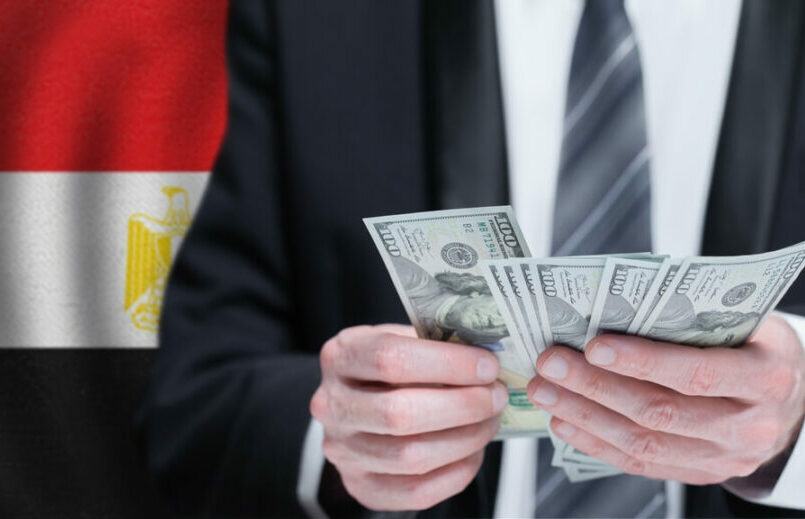The Egyptian government is considering several options to attract foreign currency to the country, especially savings of Egyptians living abroad, as the state’s foreign exchange reserves dwindle and the dollar becomes scarce in the market, and this in order to fill the demand gap for basic commodities, as well as supporting various economic sectors that depend on the dollar.
One of these options is to establish a company whose mission would be to receive the investments of Egyptians working abroad and pump them into projects inside Egypt.
Remittances from Egyptian ex-pats amounted to $21 billion from January to August, down by about $500 million during the same period last year. these reached a total of $31.9 billion in the 2021/2022 fiscal year.
The option to set up the company, which was announced by the government last September, is in its final stages. The competent authorities in Egypt are currently working to complete its executive steps and identify the most important investment opportunities that Egyptians abroad are allowed to invest in.
The company will be listed on the Egyptian Stock Exchange so that Egyptians living abroad can invest in it directly or via buying shares.
A special unit has been established for Egyptian investors abroad to deal with those wishing to launch investment projects in Egypt and help them positively overcome the obstacles they face when seeking services.
Several initiatives
The Egyptian government announced that it is working on an initiative for expatriates to offer distinctive housing units, at competitive prices, and attractive discounts provided that the price of these real estate units is paid in dollars.
Egyptian President Abdel Fattah al-Sisi also ratified a law exempting cars imported by Egyptians living abroad from various duties, customs, and taxes, in exchange for depositing a cash amount in foreign currency equal to the value of those fees in favor of the Ministry of Finance.
Earlier this year, Egypt also announced a sweeping plan to privatize government assets amounting to $24 billion.
Financial conditions unstable
Despite two major devaluations of the Egyptian pound this year and a new $3 billion bailout package from the International Monetary Fund, Egypt’s finances remain unstable.
Finance Minister Mohamed Maait had previously revealed the exit of more than $20 billion of hot foreign funds from the stock market since the Russian-Ukrainian war.
Fitch Ratings reported this month that Egypt’s ballooning current account deficit and $33.9 billion in international debt payments maturing over three years to mid-2025, leave Egypt vulnerable.
Egypt is expected to spend more than 41 percent of its revenues on interest payments toward its debt next year.
Egypt’s central bank reserves had fallen below $32 billion by October, from $35 billion in March and $40 billion in February.
The Central Bank of Egypt’s assets are still well below their February 2022 level of $9 billion.
Dollar scarcity
With very limited amounts of dollars and other foreign currencies available in Egypt, importers still face problems in financing goods from abroad due to banks’ reluctance to open new letters of credit or collection documents, creating bottlenecks for factories and retailers.
In the meantime, forex traders seem convinced that the exchange rate will be 28 pounds to the dollar at this time next year. Japan’s Nomura Bank has placed Egypt at the top of the list of countries at high risk of a currency crisis.
Goldman Sachs economist Farouk Sousse told Reuters that the backlog of corporate demand for foreign exchange and tight liquidity in the system would continue to push the pound lower if it was allowed to trade freely.
“Basic valuation models suggest that the pound is undervalued by up to 10 percent at the moment,” Sousse added. James Swanston of Capital Economics said the pound probably should have weakened to at least 25 against the dollar to account for the inflation differential with Egypt’s main trading partners.
Negotiations with the IMF lasted seven months and led to the second major devaluation this year. The central bank continues to allow the pound to weaken incrementally by 0.01 or 0.02 pounds per trading day.
Egypt recently hosted the United Nations Climate Change Conference (COP27) which provided direct benefits in the form of pledges, including pledges from US President Joe Biden, to give Egypt financial support for its transition to green energy. Egypt also benefited from revenues from tourism services provided during the conference between November 8 and November 18.








